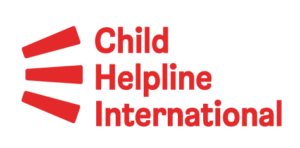It is estimated that 1 in 5 children in Europe fall victim to some form of sexual abuse during their childhood.
Child sexual abuse and exploitation (CSEA) are serious crimes that have wide-ranging and serious life-long consequences for survivors. Child sexual exploitation and abuse can take many forms, and the influx of new technology into children’s lives has broadened its scope to the online sphere. The time children spend online – where they are often unsupervised by carers or other responsible adults – has increased. Over the past 10 years there has been a 6,000% increase in reports of online child sexual abuse and exploitation (OCSEA) in the European Union. Over 60% of online child sexual abuse material (CSAM) worldwide is hosted on servers based in the EU.
Furthermore, the level of risk of Online Child Sexual Exploitation and Abuse has increased for children from Ukraine residing in Europe due to the loss of child safeguarding structures as a result of the ongoing war in Ukraine.
Child sexual abuse and exploitation is difficult to detect for several reasons. In most cases, children are sexuallyabused by people they know, trust or depend upon. In addition, children face a significant amount of fear, shame and stigma in reporting these crimes, particularly in cultures where speaking openly about sex is considered taboo. This contributes to vast underreporting.
Furthermore, in the online sphere, perpetrators use technology to their advantage to obstruct law enforcement’s ability to intercept criminal activity. As a result, underreporting of Online Child Sexual Exploitation and Abuse is a significant issue. This issue is critical to address, not only to ensure policymakers have an accurate picture of the scale of the issue at hand and thus to resource high-quality support services support services, but also – from a law enforcement perspective – to ensure that perpetrators can be investigated and prosecuted. More importantly, early detection can prevent some of the devastating, long-lasting effects that OCSEA can have on the mental, physical, social and spiritual wellbeing of the affected children.
The issue is clear: we need to make it easier for children and adults to report child sexual exploitation and abuse, improve access to trauma-informed, child-friendly, high-quality support for victims. we also need to make it easier for law enforcement to detect, investigate and prosecute perpetrators of these crimes.
There are several important policy initiatives underway in Europe addressing this issue, most notably the EU strategy for a more effective fight against child sexual abuse, and the European Commission’s Proposal for a Regulation of the European Parliament and of the Council Laying Down Rules to Prevent and Combat Child Sexual Abuse – currently under discussion in the European Parliament. In addition, several organisations and networks are working tirelessly to improve prevention, protection and support for children who are at risk, and for victims and survivors of sexual abuse and exploitation, including our strategic partners WeProtect Global Alliance, INHOPE, the National Crime Agency, Internet Watch Foundation, Brave Movement and ICMEC.
Child helplines – in Europe and globally – play a key role in this work to realise ambitions to end child sexual abuse and exploitation on the national, regional and global levels. Because they are easy to access, and due to their trustworthiness, child-friendliness and confidentiality, child helplines are often the first point of contact a child has with a national child protection system. Child helplines are essential in the prevention and detection of (O)CSEA and the provision of victim support services, as well as referral to other agencies.
Our new Position Paper provides an insight into data around how and why children who are victims and survivors of sexual abuse currently access support from our member child helplines. It explores how child helplines fit into the collective response to prevent and protect children from sexual abuse, and what action needs to be taken to further promote safe disclosure and access to trauma-informed support for children.
Patrick Krens
Executive Director


